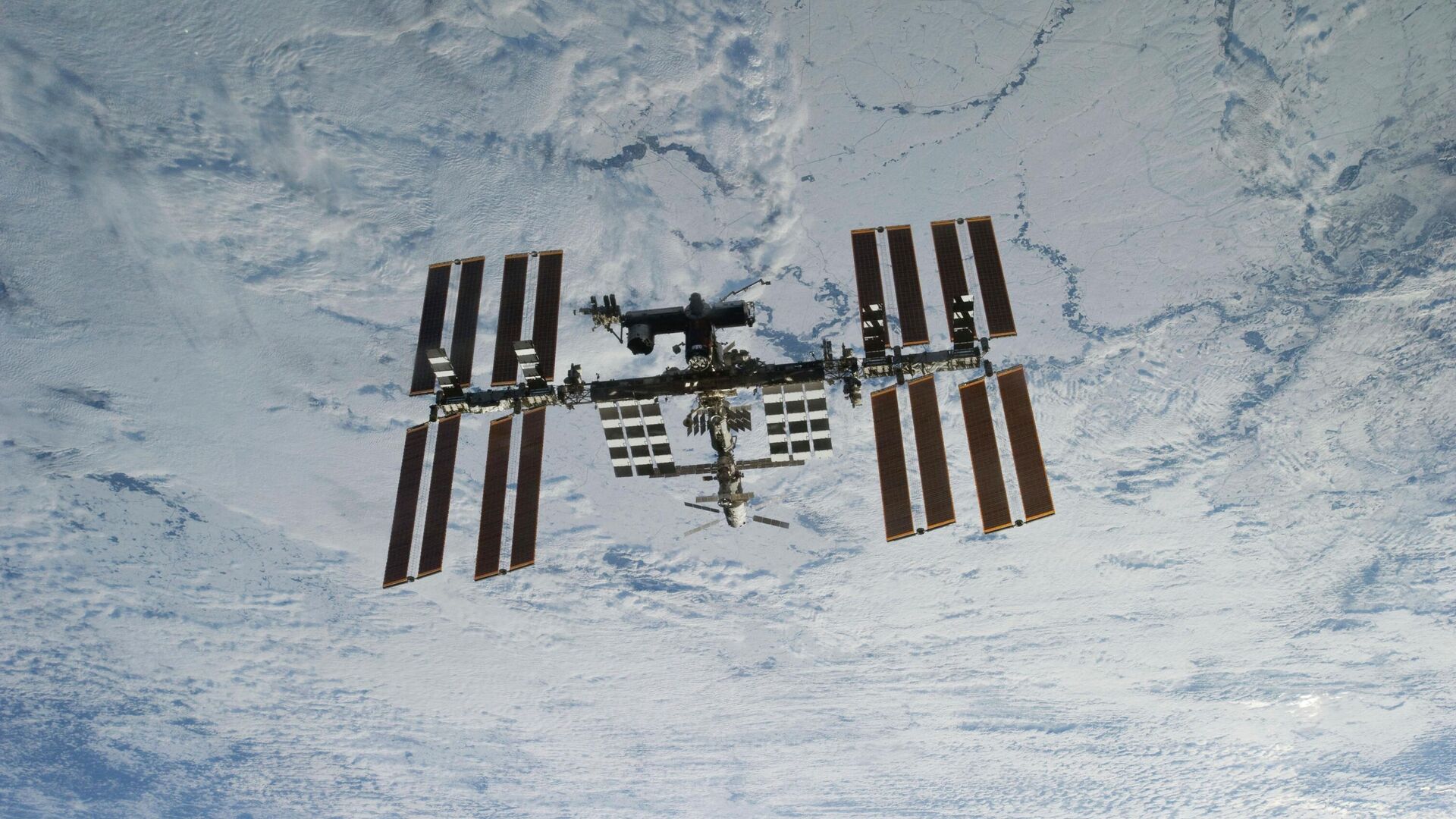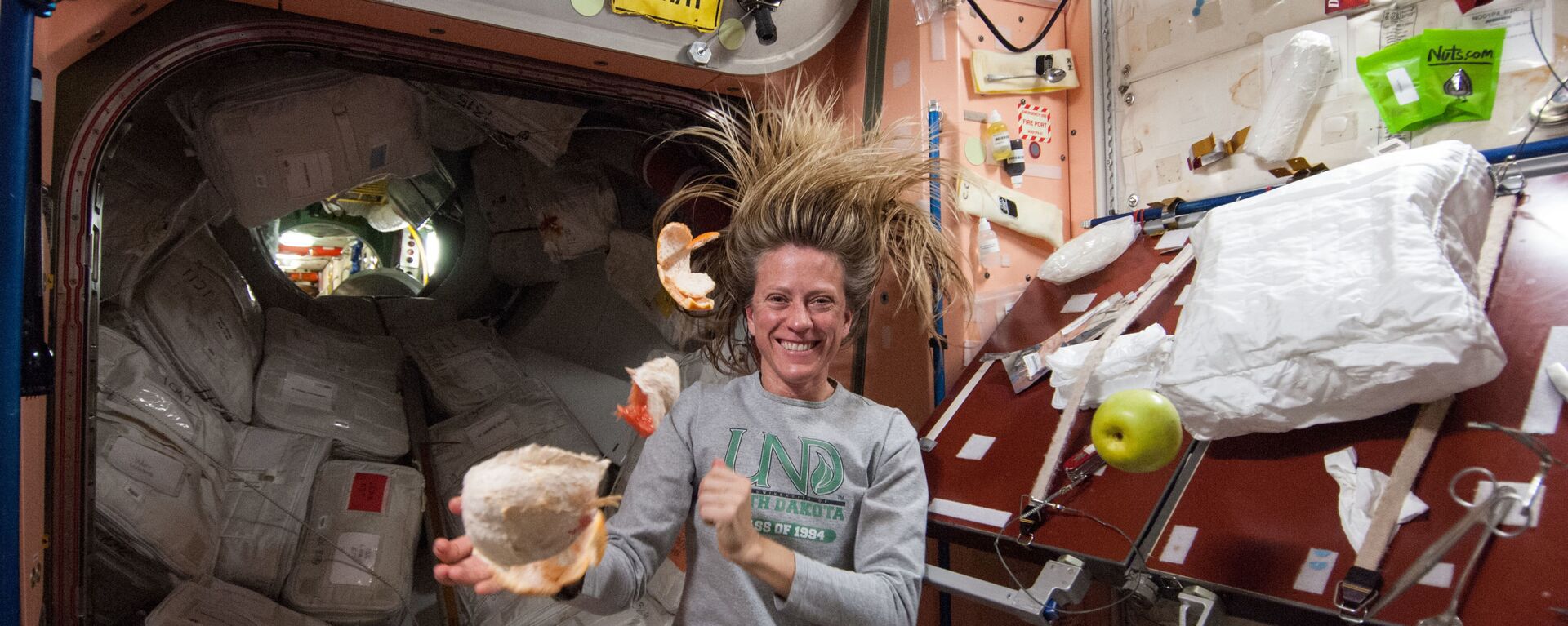https://sputnikglobe.com/20230823/rocket-carrying-russias-progress-ms-24-craft-to-iss-launches-from-baikonur-spaceport-1112804414.html
Rocket Carrying Russia's Progress MS-24 Craft to ISS Launches From Baikonur Spaceport
Rocket Carrying Russia's Progress MS-24 Craft to ISS Launches From Baikonur Spaceport
Sputnik International
A Russian Soyuz-2.1a rocket carrying the Progress MS-24 cargo craft to deliver supplies and new equipment to the International Space Station launched from Baikonur.
2023-08-23T03:10+0000
2023-08-23T03:10+0000
2023-08-23T05:51+0000
beyond politics
russia
baikonur
international space station (iss)
soyuz-2.1a
ms-24
progress-ms
science & tech
https://cdn1.img.sputnikglobe.com/img/07e6/08/0d/1099548951_0:176:3017:1873_1920x0_80_0_0_3d6050b3288236c1a7659ff1f30f70e3.jpg
The rocket has already put Progress MS-24 into Earth orbit, and the cargo spacecraft has begun its flights to the ISS, the correspondent reported. Progress MS-24 is planned to dock the ISS at 6:50 a.m. Moscow time (03:50 GMT) on August 25, after which the spacecraft will spend a total of 174 days in space. Progress MS-24 will dock the Zvezda module of the Russian segment of the station, occupied by the Progress MS-22 cargo spacecraft until August 21. The spacecraft is carrying nearly 2.5 tonnes of cargo to the station, including more than 1.5 tonnes of dry cargo for the crew and station systems, about 0.5 tonnes of fuel for the station, 420 kilograms (926 pounds) of drinking water and 40 kilograms of nitrogen to replenish the atmosphere on the station. The spacecraft is also carrying new equipment for experiments aboard the station to test the system for forecasting natural and man-made disasters, study clouds and the effect of space flight on human organs. Additionally, the new stockpiles are expected to help with an analysis of the interaction of station crew members, study the effects of the Earth's magnetic field on the properties of microorganisms, grow protein crystals and develop equipment for producing fermented probiotics in space.
https://sputnikglobe.com/20230809/iss-airborne-contaminants-could-surpass-those-in-american-households-1112480699.html
russia
baikonur
Sputnik International
feedback@sputniknews.com
+74956456601
MIA „Rossiya Segodnya“
2023
Sputnik International
feedback@sputniknews.com
+74956456601
MIA „Rossiya Segodnya“
News
en_EN
Sputnik International
feedback@sputniknews.com
+74956456601
MIA „Rossiya Segodnya“
Sputnik International
feedback@sputniknews.com
+74956456601
MIA „Rossiya Segodnya“
baikonur spaceport, russian soyuz-2.1a rocket, progress ms-24 cargo spacecraft, international space station,
baikonur spaceport, russian soyuz-2.1a rocket, progress ms-24 cargo spacecraft, international space station,
Rocket Carrying Russia's Progress MS-24 Craft to ISS Launches From Baikonur Spaceport
03:10 GMT 23.08.2023 (Updated: 05:51 GMT 23.08.2023) KOROLYOV, Russia (Sputnik) - A Russian Soyuz-2.1a rocket carrying the Progress MS-24 cargo spacecraft to deliver supplies and new equipment to the International Space Station (ISS) has launched from the Baikonur spaceport, a Sputnik correspondent reported from the mission control center on Wednesday.
The rocket has already put Progress MS-24 into Earth orbit, and the cargo spacecraft has begun its flights to the ISS, the correspondent reported.
Progress MS-24 is planned to dock the ISS at 6:50 a.m. Moscow time (03:50 GMT) on August 25, after which the spacecraft will spend a total of 174 days in space. Progress MS-24 will dock the Zvezda module of the Russian segment of the station, occupied by the Progress MS-22 cargo spacecraft until August 21.
The spacecraft is carrying nearly 2.5 tonnes of cargo to the station, including more than 1.5 tonnes of dry cargo for the crew and station systems, about 0.5 tonnes of fuel for the station, 420 kilograms (926 pounds) of drinking water and 40 kilograms of nitrogen to replenish the atmosphere on the station.
The spacecraft is also carrying new equipment for experiments aboard the station to test the system for forecasting natural and man-made disasters, study clouds and the effect of space flight on human organs.
Additionally, the new stockpiles are expected to help with an analysis of the interaction of station crew members, study the effects of the Earth's magnetic field on the properties of microorganisms, grow protein crystals and develop equipment for producing fermented probiotics in space.



